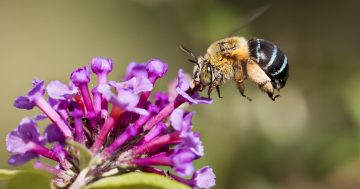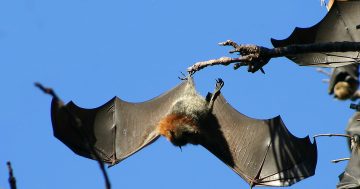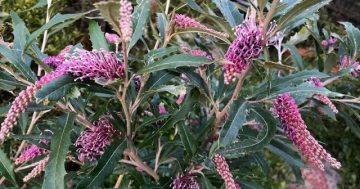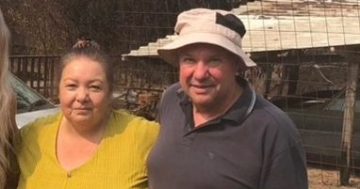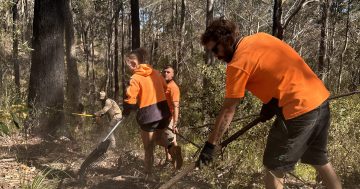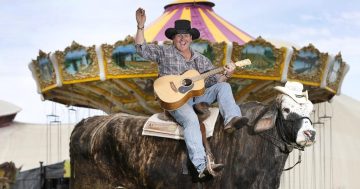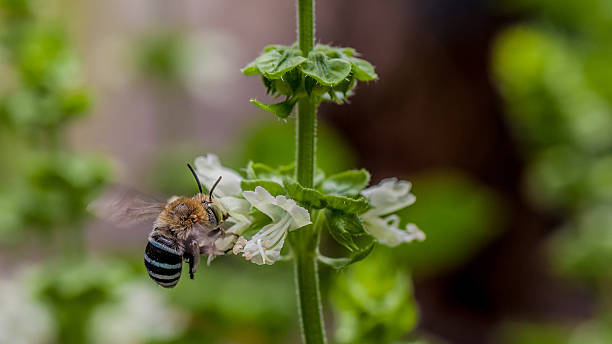
The blue banded bee is an Australian native familiar to gardeners across Eurobodalla. Photo: Supplied.
Pollination is a crucial part of revitalising natural bushland following the Black Summer bushfires, and many of Australia’s native plants rely on pollinating insects.
Eurobodalla Shire Council is offering residents bush-friendly garden visits to help them make the best choices for native plants for pollinators.
In the Eurobodalla Shire, birds and bats also pollinate and spread the seed of native plants and forest trees. Native bees have co-evolved with native plants for millions of years, and some Australian plants entirely depend on native bees for pollination.
Native bees come in different sizes, colours and patterns. The smallest is the yellow Quasihesma bee – just larger than a pinhead – and the largest is the great carpenter bee that is more than two centimetres long.
Blue banded bees and teddy bear bees, which are common in urban and suburban areas, will be familiar to most gardeners.
The best way to help all bees is to plant more flowers. They can be native plants such as banksias, melaleucas, grevilleas and eucalypts, or non-natives such as perennial basil, salvias and lavenders.
While European honey bees and native social bees live in hives or build their own nets, you can encourage native solitary bee species by providing bee hotels. A quick Google search will give you plenty of ideas, but pithy stems and holes in timber are a must.
The plants that attract bees will also encourage larger pollinators, with birds doing the day shift and bats doing the night shift.
Because birds and bats can travel large distances – flying foxes can fly up to 50km each night – they increase genetic diversity in plant populations. This creates ecosystems with more resilience, which is even more important as landscapes become more fragmented.
Bloodwoods and spotted gums are flying fox favourites, while pollinating birds are attracted to Callistemon, grevilleas and melaleucas – both animals will try out all sorts of native and non-native varieties.
With all the rain this year, many plants will be producing more than their fair share of flowers, fruits and seeds for these busy pollinators.
For more information, visit Eurobodalla Shire Council’s website, or phone the council’s natural resources team on 02 4474 1000.







